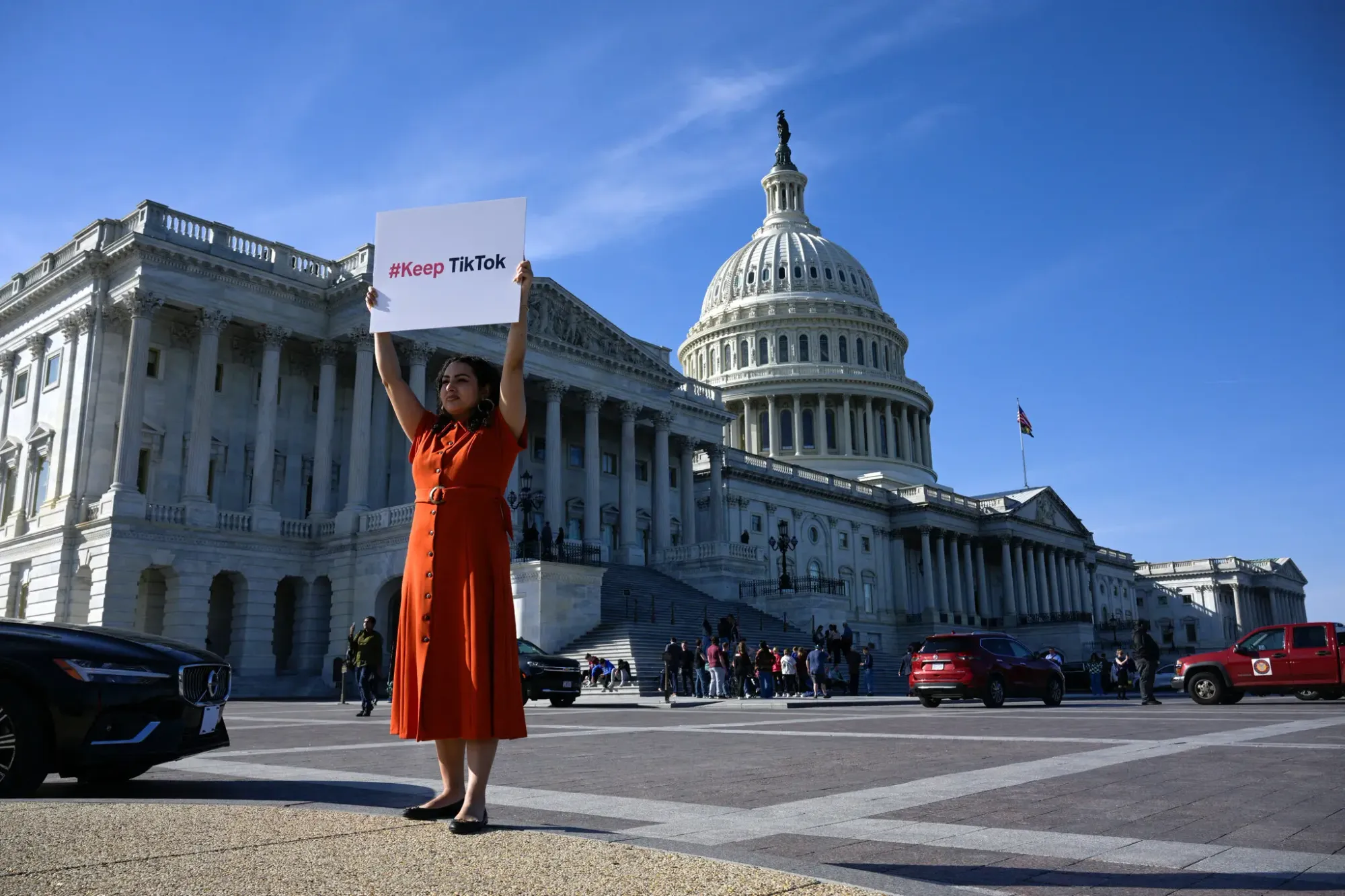For Whom the Tik Toks

Riddle me this: if you're a Chinese-owned entity under fire due to the concern that your app has immense power in swaying your user base to influence aspects of American life such as politics, what do you do to assuage such concerns? The answer, according to TikTok, is apparently use your immense power to sway your user base to influence American politics.
Okay.
Look, I'm not a TikTok user. Like everyone else, I see TikTok videos all over the web as they're shared on other social networks. Many are great! People are creative.1 But I don't have the app on my phone because I honestly have always been a little weirded out by the above. Something just feels off to me, and always has.2
Perhaps that's unfair. I was also an early investor in Vine, and so perhaps I'm just bitter that TikTok out-Vine'd-Vine – thanks for literally nothing, Twitter. But as TikTok ramps up this campaign to save itself, it's really rubbing me the wrong way. Yes, many companies do such campaigns when under political pressure, but many companies in such a position are also not owned by a foreign entity – one which, incidentally, happens to ban most American social apps.3
Data collection issues aside – is Oracle now actually auditing such things or not? – the real concern is, unfortunately, hypothetical. But it's dangerous enough that it needs to be addressed in a real way: the use of a social network with hundreds of millions of users to further political (or business) interests. Yes, part of that is propaganda. But the even larger threat may be the threat of omission – that is, the editing of algorithms deciding both what to surface and what not to surface. That's subtle, but important. And it has come up in China many times.
So yes, I view this as problematic:
Unlike traditional lobbyists, the creators were not paid to support TikTok. However, the company covered their transportation, lodging and meals, including a festive dinner at the Bazaar by José Andrés, a restaurant in the Waldorf Astoria hotel.
I mean, I, for one, would rather do that dinner than be explicitly paid. And:
TikTok helped coordinate television appearances — Mr. Tran said he joined “Good Morning America” this week — and protests outside the Capitol and the White House, where creators held signs with messages like “TikTok changed my life for the better.”
Totally normal and naturally organic campaign. And:
“We’re proud that so many creators and community members would be willing to take time away from their families, work and businesses, on such short notice, to advocate against a rushed bill that would trample Americans’ constitutional rights of free expression,” Alex Haurek, a spokesman for TikTok, said in a statement. He said that more than 100 creators and members of the TikTok community joined the push.
Propaganda, noun: "information, especially of a biased or misleading nature, used to promote a political cause or point of view."
Check!
Undoubtedly thanks in part to TikTok's push notification antics backfiring, the bill passed the House with overwhelmingly bipartisan support, which basically nothing does these days. Sadly, it looks like it may die at the hands of Rand Paul – who, it must be noted, is a fool – in the Senate. But it's also probably not the last we hear of this issue. Though the king of corruption may kill it if/when he's back in power.
Update 3/19/24: Further thoughts on the matter...

1 And obviously it has become an important and vital tool for millions of users, according to TikTok. Lol. But seriously, it sucks that the users are stuck in the middle of this. But perhaps better now than in the (yes, hypothetical) situation where they're propping up a propaganda machine.
2 People quickly forget the history here, but Bytedance bought Musical.ly -- a similar social app started (and headquartered) in China but which was operating in the US -- and merged it into TikTok, the version of their popular Douyin service, meant for the rest of the world. Then they proceeded to spend billions of dollars on Facebook ads to siphon users to their app. Basically no startup could afford to run such a playbook, quite literally. But this is how TikTok overcame the "cold start" problem which dooms so many startups. To be clear, if the app wasn't any good, it wouldn't have worked. But it was good. Their algorithms, honed by Bytedance, and their model to eschew the social graph in favor of a rapid-fire interest graph.
3 Many have pointed out this tit-for-tat element, but it's really not the same. China bans most US social apps because they refuse to censor in adherence to Chinese rules (stated and unstated). This is almost the opposite situation.

